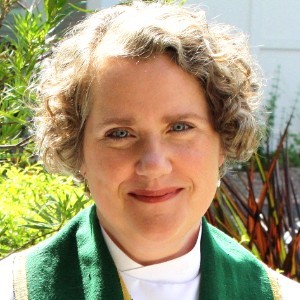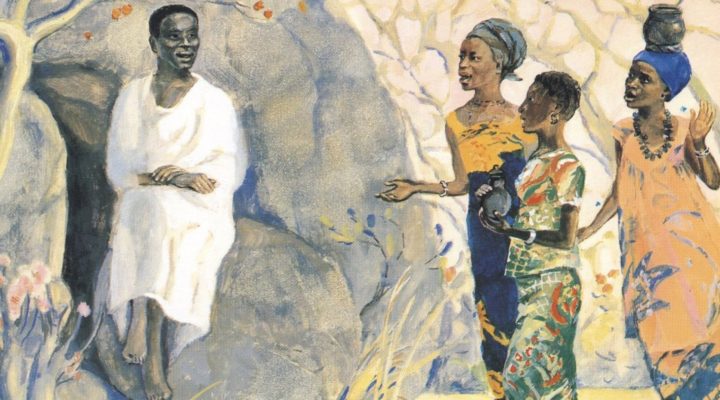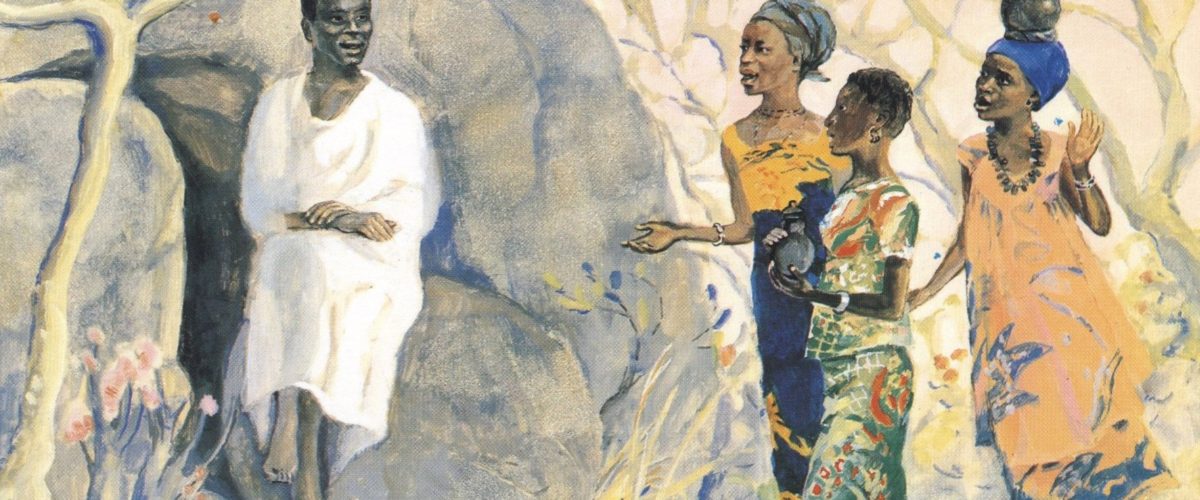Easter is here. But before we move too far into this season of hope, we need to pause and remember how Jesus died. Jesus was not the first person of color to be murdered by the authorities; his death was not the beginning and not the end.
Jesus was mocked, beaten, abused by the policing authorities of his day; he was hung on a cross where he could not breathe. He cried out but the torture didn’t stop. Friends, we need to sit with this before we move fully into Eastertide. We cannot get to resurrection in any way other than through acknowledging the pain and suffering that preceded it. Pain and suffering that is all too common in our time.

Laura Mayo
The murder trial of Derek Chauvin has many of us reliving the death of George Floyd, hearing again his cries for help, “I can’t breathe,” seeing photographs and videos of a white police officer with his knee on the Black man’s neck for almost 9 minutes — killing George Floyd.
Easter Sunday this year was April 4. Martin Luther King Jr. was shot and killed on April 4 in 1968. Jesus was not the first person of color to be murdered. Jesus was not the last. King and Floyd are among the thousands of people of color slaughtered. This is an all-too-familiar story: abuse of power, oppression, racism, injustice.
Brené Brown writes: “When we deny our stories, they define us. When we own our stories, we get to write a brave new ending. We must own our failures and mistakes so that we can learn and grow. It doesn’t feel comfortable, but courage rarely does. Yes, we need to own a million heartbreaking stories of discrimination and prejudice, and make millions of changes, and hold space for a million tough conversations. But, if each one of us owns one story and makes one change and has one honest conversation where we listen more than defend or offer false comfort — we can do this. There is a way to write a brave new ending to one of the most painful stories in our history. What remains to be seen is if we have the will and courage.”
“Another man with dark skin murdered and after his death witnesses flee; they are silent and afraid.”
The writer of the Gospel of Mark is inviting us into this sacred work of rewriting, if we have the will and courage. The original ending of the Gospel of Mark is this: “But he said to them, ‘Do not be alarmed; you are looking for Jesus of Nazareth, who was crucified. He has been raised; he is not here. Look, there is the place they laid him. But go, tell his disciples and Peter that he is going ahead of you to Galilee; there you will see him, just as he told you.’ So they went out and fled from the tomb, for terror and amazement had seized them; and they said nothing to anyone, for they were afraid.”
Another man with dark skin murdered and after his death witnesses flee; they are silent and afraid. We have seen this response all too often, especially among those of us who are white. Mark leaves the story here, but we know the story doesn’t end where Mark leaves it. We know the message gets out. We know the women were not silenced.
The message of Easter is that death does not have the last word. We know the women didn’t stay silent. If they had, we wouldn’t know about this day and, in all likelihood, we wouldn’t know about Jesus. He would be one more prophet executed for treason. But we do know this story. We know it because those women were brave enough to break their silence. They were courageous enough to face their fears. We know because we see such bravery, such resurrection potential, lived out even now.
Those Easter morning women are seen and heard again and again when violence and injustice take place. They are speaking out, they are recording, they are crying, they are preaching. The Easter story does not end in silence and fear, and it cannot end that way now. It cannot. It will not.
Some of us in the face of violence against our siblings of color are fleeing, silent, afraid. This cannot be how the story ends. White silence and fear are familiar; this is how the story has gone so often. But it is not the only option, and it must not be the end of the story. We must write a new chapter. We must make this an Easter story of new life — new ways of living.
“There is always room for another verse, another chapter, another book.”
Easter comes to us each year to shout that death does not have the last word. Easter comes into the graveyard to proclaim that abandonment, betrayal and violence are not the answers, are not the end of the story.
God is still speaking. There is always room for another verse, another chapter, another book. Change is possible.
In 1973 in the midst of racial injustice and global strife, Howard Thurman wrote a word of hope: “The old song of my spirit has wearied itself out. It has long ago been learned by heart so that now it repeats itself over and over, bringing no added joy to my days or lift to my spirit. It is a song measured in rhythm to which I am bound by ties of habit and timidity of mind. But my life has passed beyond to other levels where the old songs are meaningless … . I will sing a new song. As difficult as it is, I must learn the new song that is capable of meeting the new need. I must fashion new words born of all the new growth of my life, my mind and spirit. I must prepare for new melodies that have never before been mine, that all that is within me may lift my voice unto God.”
We need to write a new song. We need to add another chapter. We need to live a new way, an Easter way, a fresh unfolding. We must not flee. We must not remain silent and afraid. We will sing, proclaim, shout; we will move forward in a new justice-way of living.
Laura Mayo serves as senior minister of Covenant Church in Houston. She is a graduate of Carson-Newman University and Wake Forest Divinity School, with additional studies at Regent’s Park College of Oxford University. She is active in various interfaith projects and organizations in Houston.


